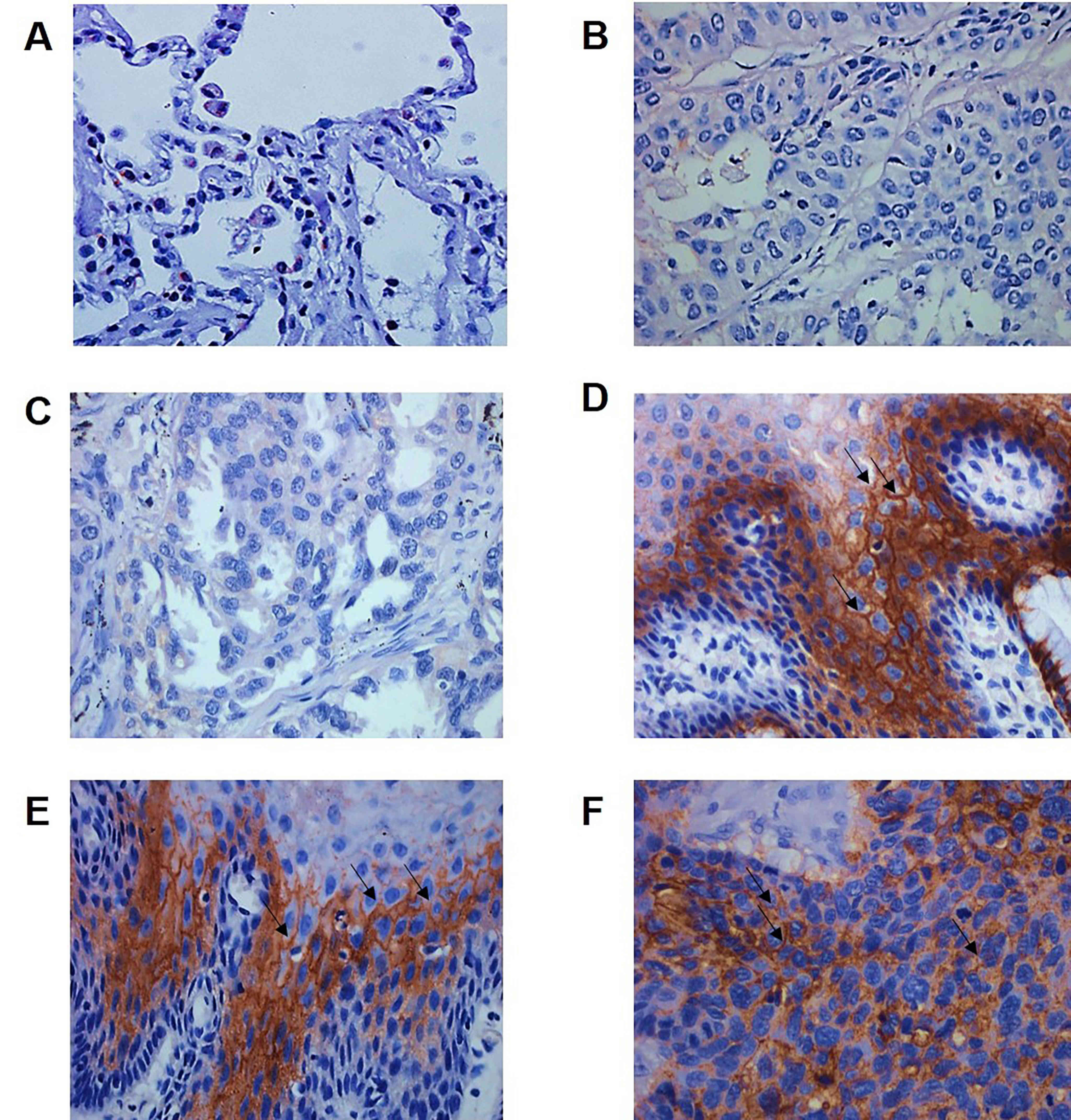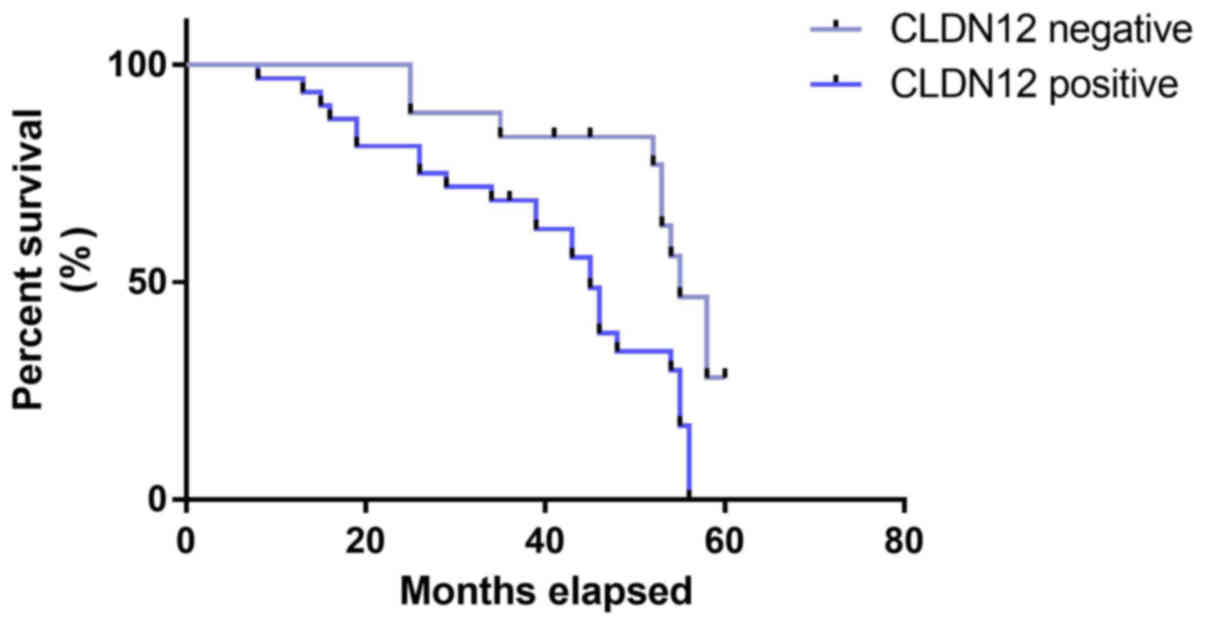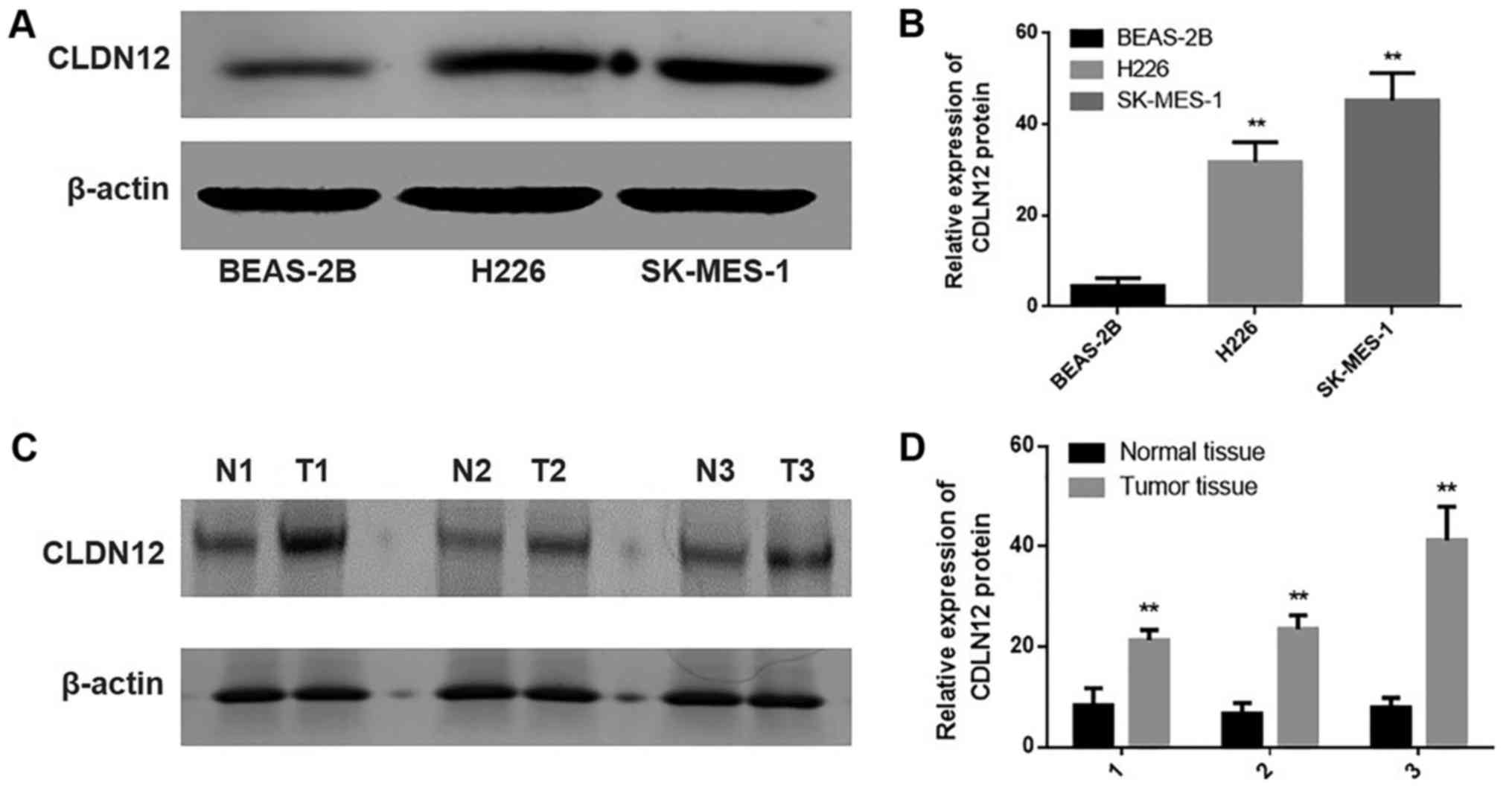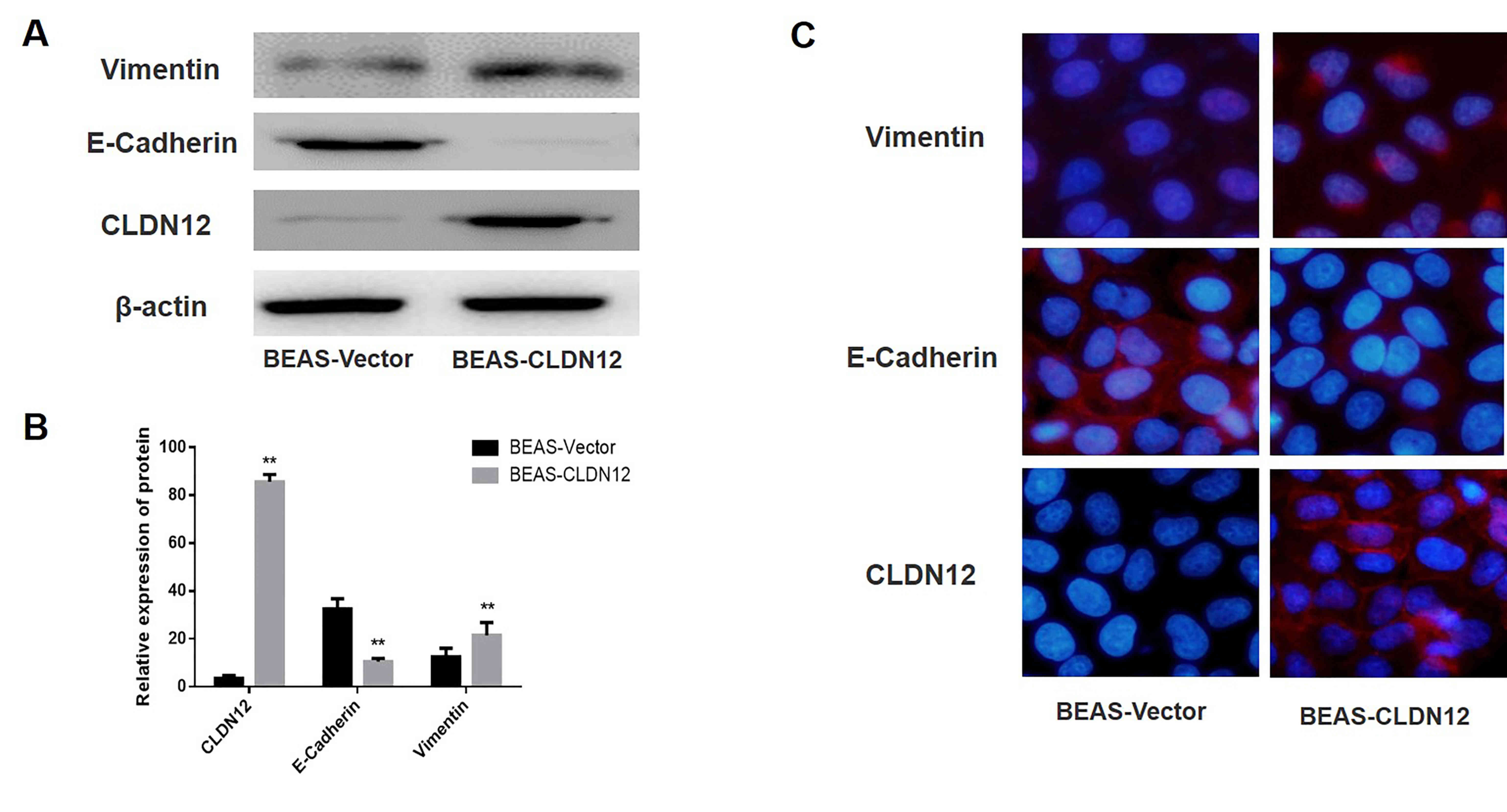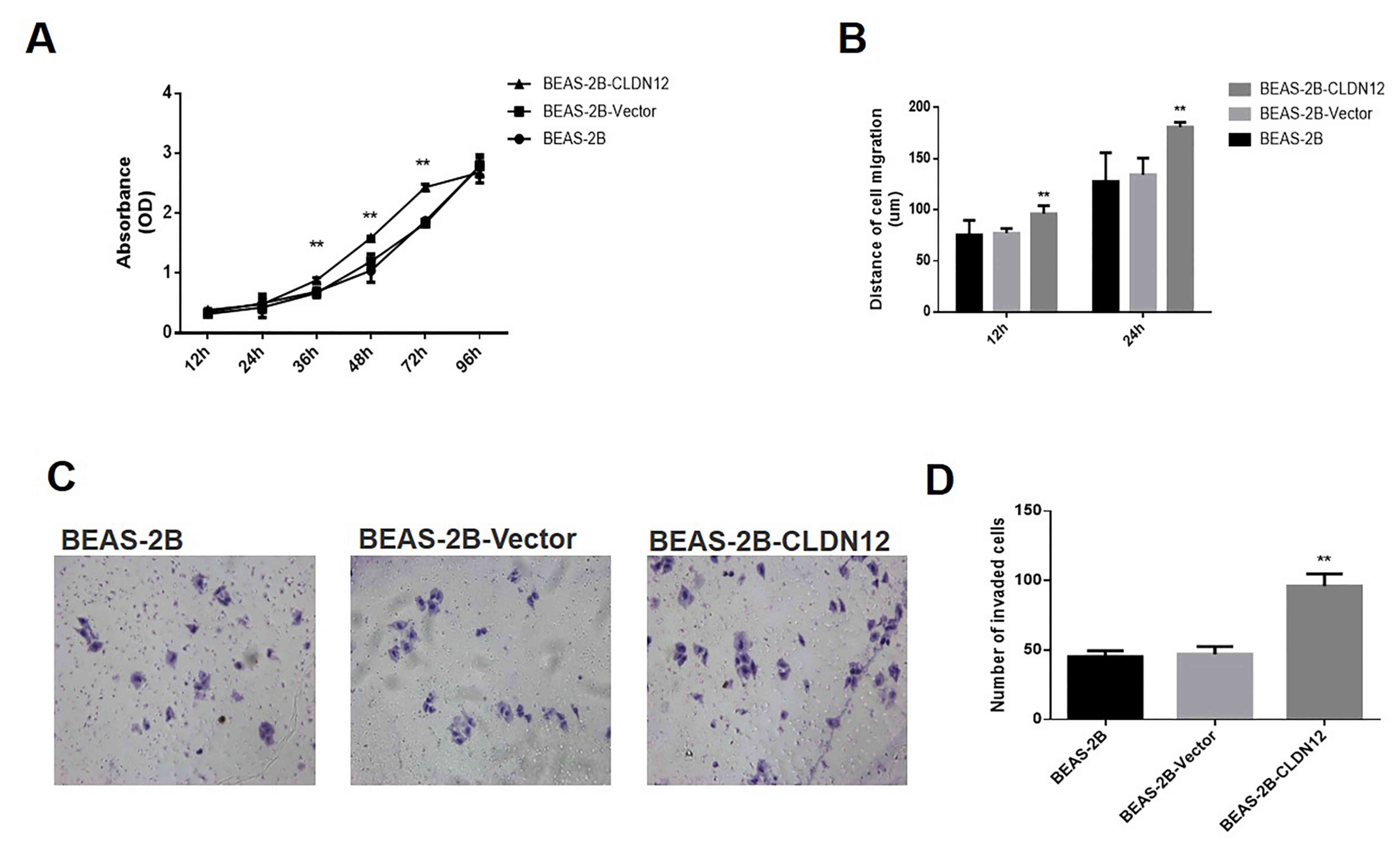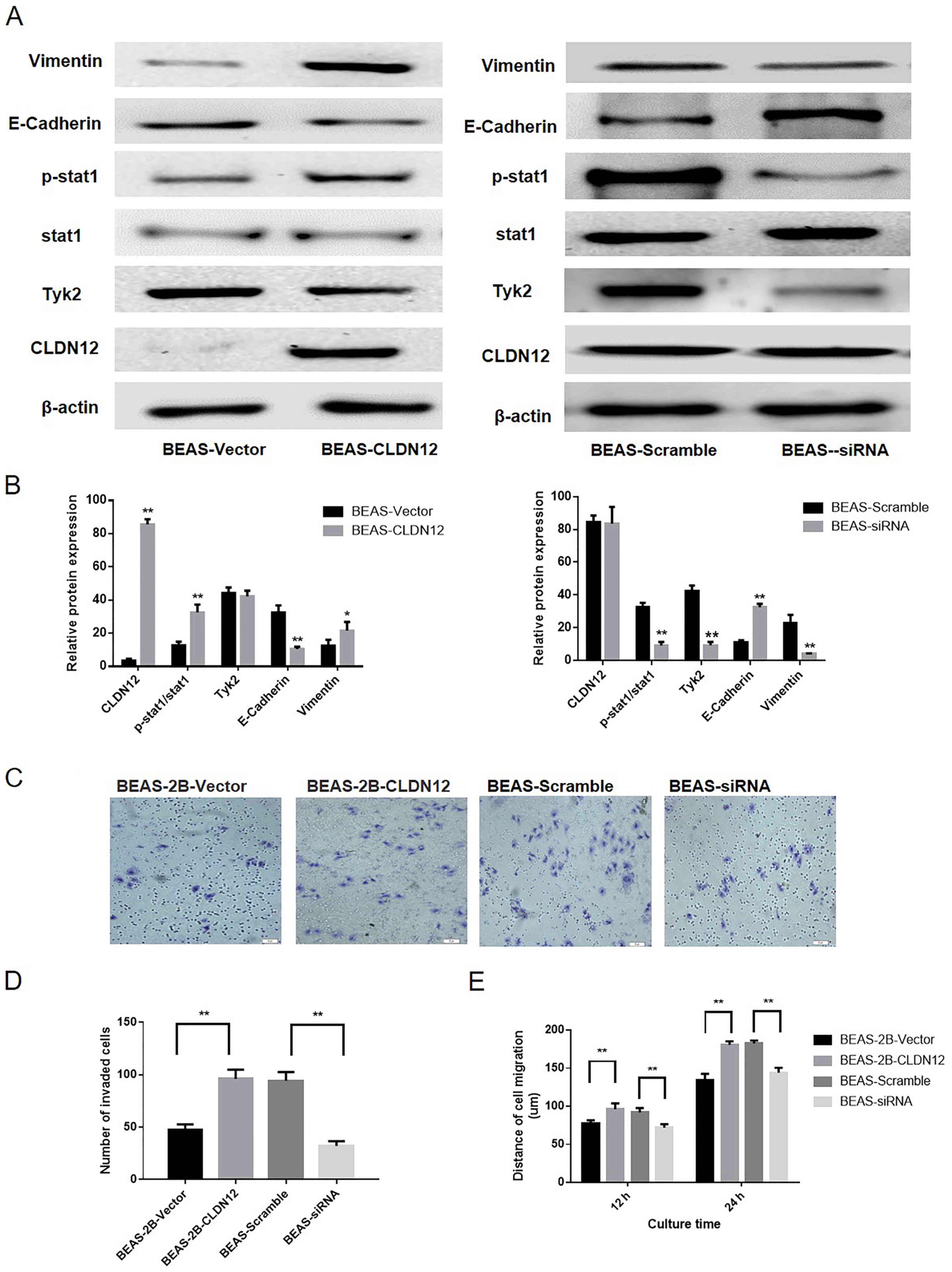|
1
|
Tabaries S and Siegel PM: The role of
claudins in cancer metastasis. Oncogene. 36:1176–1190. 2017.
View Article : Google Scholar : PubMed/NCBI
|
|
2
|
Matsuda A and Katanoda K: Five-year
relative survival rate of lung cancer in the USA, Europe and Japan.
Jpn J Clin Oncol. 43:1287–1288. 2013. View Article : Google Scholar : PubMed/NCBI
|
|
3
|
Osanai M, Takasawa A, Murata M and Sawada
N: Claudins in cancer: Bench to bedside. Pflugers Arch. 469:55–67.
2017. View Article : Google Scholar : PubMed/NCBI
|
|
4
|
Kwon MJ: Emerging roles of claudins in
human cancer. Int J Mol Sci. 14:18148–18180. 2013. View Article : Google Scholar : PubMed/NCBI
|
|
5
|
Balda MS and Matter K: Tight junctions at
a glance. J Cell Sci. 121:3677–3682. 2008. View Article : Google Scholar : PubMed/NCBI
|
|
6
|
Escudero-Esparza A, Jiang WG and Martin
TA: The Claudin family and its role in cancer and metastasis. Front
Biosci (Landmark Ed). 16:1069–1083. 2011. View Article : Google Scholar : PubMed/NCBI
|
|
7
|
Ouban A: Claudin-1 role in colon cancer:
An update and a review. Histol Histopathol. 33:1013–1019.
2018.PubMed/NCBI
|
|
8
|
Szasz MA: Claudins as prognostic factors
of breast cancer. Magy Onkol. 56:209–212. 2012.(In Hungarian).
PubMed/NCBI
|
|
9
|
de la Fuente Martin L, Malander S, Hartman
L, Jönsson JM, Ebbesson A, Nilbert M, Måsbäck A and Hedenfalk I:
Claudin-4 expression is associated with survival in ovarian cancer
but not with chemotherapy response. Int J Gynecol Pathol.
37:101–109. 2018.PubMed/NCBI
|
|
10
|
Ahmad R, Kumar B, Chen Z, Chen X, Müller
D, Lele SM, Washington MK, Batra SK, Dhawan P and Singh AB: Loss of
claudin-3 expression induces IL6/gp130/Stat3 signaling to promote
colon cancer malignancy by hyperactivating Wnt/β-catenin signaling.
Oncogene. 36:6592–6604. 2017. View Article : Google Scholar : PubMed/NCBI
|
|
11
|
Zhang X, Ruan Y, Li Y, Lin D, Liu Z and
Quan C: Expression of apoptosis signal-regulating kinase 1 is
associated with tight junction protein claudin-6 in cervical
carcinoma. Int J Clin Exp Pathol. 8:5535–5541. 2015.PubMed/NCBI
|
|
12
|
Zhang X, Ruan Y, Li Y, Lin D and Quan C:
Tight junction protein claudin-6 inhibits growth and induces the
apoptosis of cervical carcinoma cells in vitro and in vivo. Med
Oncol. 32:1482015. View Article : Google Scholar : PubMed/NCBI
|
|
13
|
Ouban A and Ahmed A: Claudins in human
cancer, A review. Histol Histopathol. 25:83–90. 2010.PubMed/NCBI
|
|
14
|
Zavala-Zendejas VE, Torres-Martinez AC,
Salas-Morales B, Fortoul TI, Montano LF and Rendon-Huerta EP:
Claudin-6, 7, or 9 overexpression in the human gastric
adenocarcinoma cell line AGS increases its invasiveness, migration,
and proliferation rate. Cancer Invest. 29:1–11. 2011. View Article : Google Scholar : PubMed/NCBI
|
|
15
|
Yoshida T, Kinugasa T, Akagi Y, Kawahara
A, Romeo K, Shiratsuchi I, Ryu Y, Gotanda Y and Shirouzu K:
Decreased expression of claudin-1 in rectal cancer: A factor for
recurrence and poor prognosis. Anticancer Res. 31:2517–2525.
2011.PubMed/NCBI
|
|
16
|
Cherradi S, Ayrolles-Torro A, Vezzo-Vie N,
Gueguinou N, Denis V, Combes E, Boissière F, Busson M,
Canterel-Thouennon L, Mollevi C, et al: Antibody targeting of
claudin-1 as a potential colorectal cancer therapy. J Exp Clin
Cancer Res. 36:892017. View Article : Google Scholar : PubMed/NCBI
|
|
17
|
Philip R, Heiler S, Mu W, Buchler MW,
Zoller M and Thuma F: Claudin-7 promotes the epithelial-mesenchymal
transition in human colorectal cancer. Oncotarget. 6:2046–2063.
2015. View Article : Google Scholar : PubMed/NCBI
|
|
18
|
D'Souza T, Agarwal R and Morin PJ:
Phosphorylation of claudin-3 at threonine 192 by cAMP-dependent
protein kinase regulates tight junction barrier function in ovarian
cancer cells. J Biol Chem. 280:26233–26240. 2005. View Article : Google Scholar : PubMed/NCBI
|
|
19
|
D'Souza T, Indig FE and Morin PJ:
Phosphorylation of claudin-4 by PKCepsilon regulates tight junction
barrier function in ovarian cancer cells. Exp Cell Res.
313:3364–3375. 2007. View Article : Google Scholar : PubMed/NCBI
|
|
20
|
Li X, Li Y, Qiu H and Wang Y:
Downregulation of claudin-7 potentiates cellular proliferation and
invasion in endometrial cancer. Oncol Lett. 6:101–105. 2013.
View Article : Google Scholar : PubMed/NCBI
|
|
21
|
Lu Z: Functions of claudin-7 in human lung
cancer (unpublished PhD thesis). 2012.
|
|
22
|
Micke P, Mattsson JS, Edlund K, Lohr M,
Jirström K, Berglund A, Botling J, Rahnenfuehrer J, Marincevic M,
Pontén F, et al: Aberrantly activated claudin 6 and 18.2 as
potential therapy targets in non-small-cell lung cancer. Int J
Cancer. 135:2206–2214. 2014. View Article : Google Scholar : PubMed/NCBI
|
|
23
|
Moldvay J, Fabian K, Jackel M, Németh Z,
Bogos K, Furák J, Tiszlavicz L, Fillinger J, Döme B and Schaff Z:
Claudin-1 protein expression is a good prognostic factor in
non-small cell lung cancer, but only in squamous cell carcinoma
cases. Pathol Oncol Res. 23:151–156. 2017. View Article : Google Scholar : PubMed/NCBI
|
|
24
|
Du W, Xu X, Niu Q, Zhang X, Wei Y, Wang Z,
Zhang W, Yan J, Ru Y, Fu Z, et al: Spi-B-mediated silencing of
claudin-2 promotes early dissemination of lung cancer cells from
primary tumors. Cancer Res. 77:4809–4822. 2017.PubMed/NCBI
|
|
25
|
Che J, Yue D, Zhang B, Zhang H, Huo Y, Gao
L, Zhen H, Yang Y and Cao B: Claudin-3 inhibits lung squamous cell
carcinoma cell epithelial-mesenchymal transition and invasion via
suppression of the Wnt/β-catenin signaling pathway. Int J Med Sci.
15:339–351. 2018. View Article : Google Scholar : PubMed/NCBI
|
|
26
|
Lu Z, Liu Y, Xu J, Yin H, Yuan H, Gu J,
Chen YH, Shi L, Chen D and Xie B: Immunohistochemical
quantification of expression of a tight junction protein,
claudin-7, in human lung cancer samples using digital image
analysis method. Comput Methods Programs Biomed. 155:179–187. 2018.
View Article : Google Scholar : PubMed/NCBI
|
|
27
|
Lu Z, Kim DH, Fan J, Lu Q, Verbanac K,
Ding L, Renegar R and Chen YH: A non-tight junction function of
claudin-7-Interaction with integrin signaling in suppressing lung
cancer cell proliferation and detachment. Mol Cancer. 14:1202015.
View Article : Google Scholar : PubMed/NCBI
|
|
28
|
Koval M: Claudin heterogeneity and control
of lung tight junctions. Annu Rev Physiol. 75:551–567. 2013.
View Article : Google Scholar : PubMed/NCBI
|
|
29
|
Kominsky SL: Claudins: Emerging targets
for cancer therapy. Expert Rev Mol Med. 8:1–11. 2006. View Article : Google Scholar : PubMed/NCBI
|















